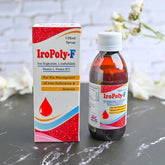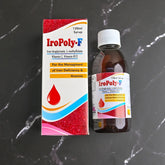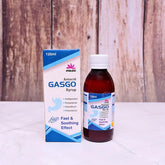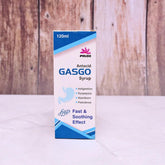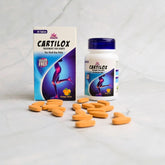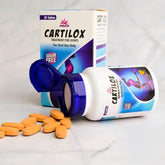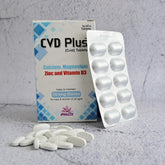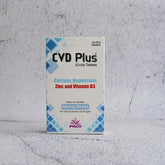The Importance of the Sunshine Vitamin for Strong Bones and Healthy Joints
Have you ever contemplated the rationale behind your mother's advice to step away from electronic devices and bask in the outdoors, under the sun? One of the key explanations lies in obtaining the "sunshine vitamin," commonly known as vitamin D, which assumes a pivotal role in maintaining the health of bones and joints. This article delves into the importance of vitamin D, its prime sources, reputable supplements, and its contributions to healthy bones and joints.
Understanding Vitamin D
Vitamin D is a type of fat-soluble vitamin that is naturally found in only a limited number of foods. The name "sunshine vitamin," arises from the body's ability to manufacture it when the skin comes into contact with sunlight. Additionally, vitamin D is accessible in the form of dietary supplements and is added to fortified foods like milk, orange juice, and cereals.
The Role of Vitamin D in Fortifying Bones and Joints
Vitamin D holds a critical function in facilitating the absorption of calcium and phosphorus, essential minerals for bones and joints. Inadequate vitamin D levels impede proper calcium absorption, reslting in weakened bones, fractures, and possibly osteoporosis—an ailment characterized by brittle, easily breakable bones.
Beyond its contribution to calcium assimilation, vitamin D plays a role in curbing bodily inflammation, a pivotal aspect of sustaining supple joints. While inflammation is a natural defense mechanism in response to injury or infection, chronic inflammation can lead to joint discomfort and rigidity, paving the way for conditions such as osteoarthritis.
Determining Adequate Vitamin D Intake
The recommended quantity of vitamin D varies based on factors like age and gender. Generally, adults require a daily intake of 600 to 800 International Units (IU) of vitamin D, with the elderly (70 years and above) advised to aim for 800 IU daily. However, as numerous individuals fail to obtain sufficient vitamin D from diet or sunlight exposure alone, which is why supplementation becomes necessary.
Approaches to Attaining Optimal Vitamin D Levels
Vitamin D stands as a vital nutrient for bone, tooth, and muscle well-being. There are three ways to get the recommended dose of vitamin D mentioned below:
The most effective way to get enough vitamin D is through exposure to sunlight. However, this poses a challenge for those in sun-deprived regions or with limited outdoor exposure. In such cases, supplementation serves as a viable method alongside dietary sources.
Dietary Sources
Apart from sunlight, dietary items offer vitamin D content. Fatty fish like salmon, mackerel, and tuna stand as excellent sources. Furthermore, egg yolks and fortified foods such as milk and cereals contribute to vitamin D intake.
Vitamin D Supplements
Vitamin D supplements play a crucial role in complementing natural food sources, especially when sunlight exposure is limited. They provide a reliable way to maintain optimal levels of this essential nutrient, essential for bone health, immune function, and overall well-being. While sunlight remains a primary source, supplements can bridge gaps and ensure a comprehensive approach to meeting vitamin D needs. For those seeking a quality supplement, 'D-Phlox' by Phlox Pharma comes recommended, offering a trusted option to support your vitamin D requirements. By getting enough vitamin D through sunlight, supplementation, or dietary choices, we contribute to the well-being and longevity of our bones and joints. The next time you embrace the sun, remember that you're nurturing not only a tan but also the health of your bones and joints!





